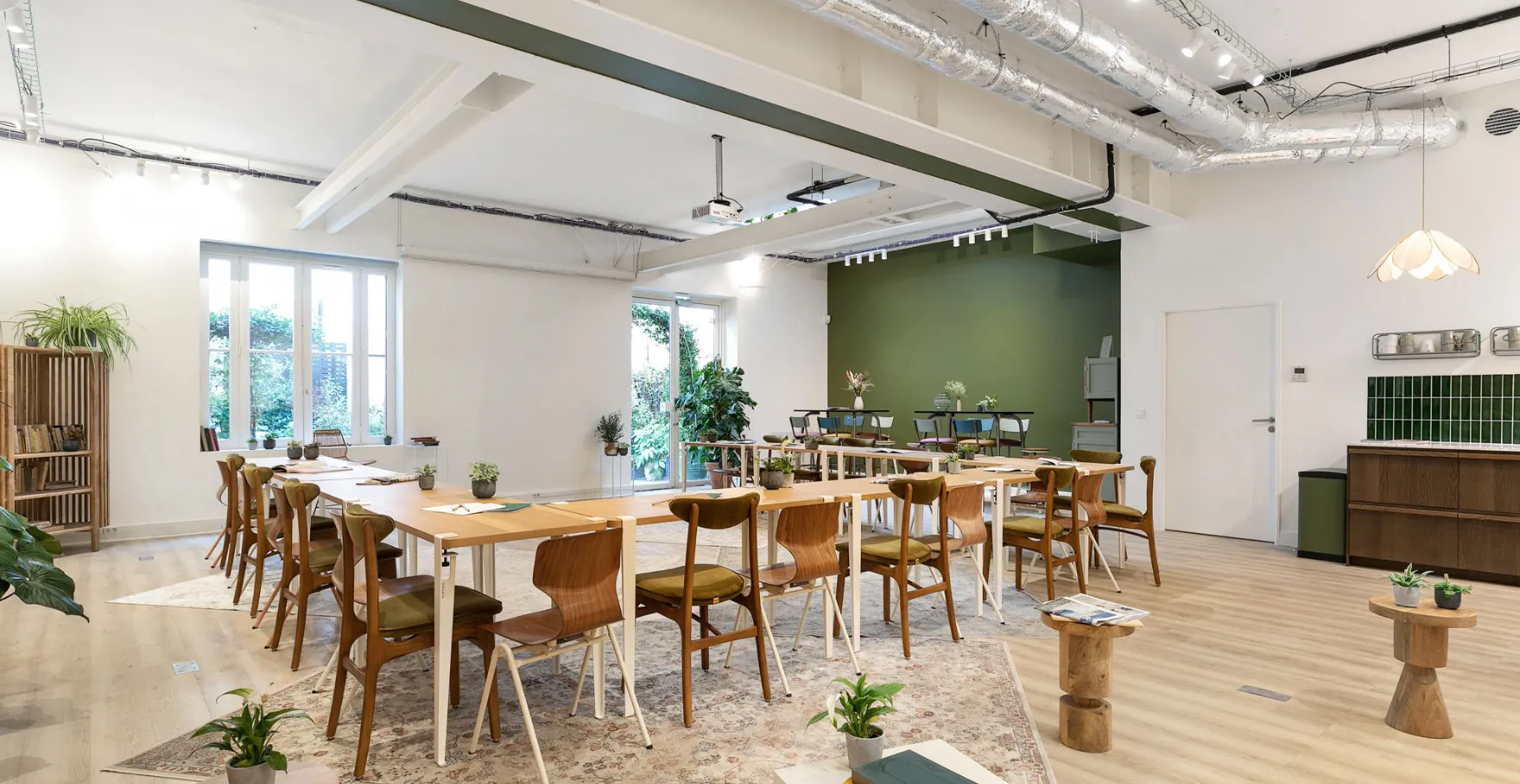
Organizing a productive work meeting cannot be improvised. From defining the objectives to the logistics of the room, including the right number of participants and the tools to be planned, every detail counts.
Whether you are a manager, HR or project manager, here is our practical tips for a successful next business meeting.
1. Clearly define the purpose of the meeting
This is the basic step — and yet it is often overlooked. Why do we bring employees together? For:
- Start a new project
- Sharing results
- Solving a problem
- Co-building a road map
- Strengthen team spirit
Depending on the objective, you will adapt the format, The tone, The duration And even The place of your meeting.
For example: a launch meeting can include an ice-breaker or a group lunch to create a dynamic environment.
2. Know the number of participants
Before booking your room or sending out invitations, set up a clear list of essential participants.
It will help you:
- Choosing a space with the right capacity
- Provide the right collaborative tools
- Anticipate catering or logistical needs
At Keeze, our rooms are flexible for groups of 4 to 110 people.
3. Choosing the right location for your business meeting
The location has a direct impact on the attentiveness, creativity, and engagement of participants. Outside of the office, theOff-site is often the ideal option:
- Better concentration
- Break with routine
- A more favourable climate for exchanges
You can opt for:
- An equipped meeting room in a dedicated space
- A cozy café for informal exchanges
- An unusual place (rooftop, gallery, workshop...) to stimulate creativity
With Keeze, you have access to inspiring places and tailor-made services for your meetings, seminars and brainstormings.
4. Check essential equipment
An effective meeting is also a good technical preparation. Before the big day, make sure that the chosen location offers:
- Stable WiFi connection
- Screen or video projector
- Paperboard or wall of ideas
- Accessible sockets
- Video conferencing hardware (if hybrid)
Objective: to avoid any loss of time linked to hardware problems.
5. Facilitate interaction and productivity
Collaborative tools play a key role in the effectiveness of your meetings. In addition to the classics, consider including:
- Klaxoon, to brainstorm as a team
- Miro or Notion, for shared reports
- Zoom/Teams, if participants are remote
6. Organize post-meeting follow-up
A successful meeting doesn't end at the end of the calendar window. Consider:
- Send a clear and actionable reporting
- Fasten the next steps And the chiefs
- Request a quick feedback On the format
Objective: to anchor decisions and improve future meetings.
Need a place to organize your next meeting?
Chez KEEZE, we offer you inspiring spaces, fully equipped, and designed for productivity.
👉 Discover our rooms and book in a few clicks: view Keeze meeting spaces


